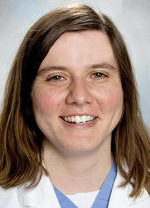January 2014

Rebecca Baron, MD
As Rebecca Baron, MD, crossed the strings of her 1800s French cello with a bow made in Chicago, her hometown, she glanced up to see the bride clasp the groom’s cheek and pull him in for a kiss–their first as husband and wife. It was the first wedding ever witnessed in the Family Waiting Room at Brigham and Women’s Hospital in Boston, and Dr. Baron was part of a team of medical staff, family, and friends who rallied to help the couple wed before mesothelioma took the groom’s life in 2001.
“Of all the things that I do, playing music is one of the most important and gratifying for me,” says Dr. Baron, director of the new BWH Pulmonary Fellowship Program, assistant professor of medicine at Harvard Medical School, and associate physician at the hospital, where she spends eight weeks in the ICU.
When not at the bench, bedside, or lectern, she plays at memorial services and other functions at the hospital and is also part of a string quartet made up of her physician colleagues. “For me, it’s a perfect blend of my role as a doctor and musician,” she says. “It’s a different way to help patients and their families and ease suffering, if at all possible.”
Beyond the bow, Dr. Baron’s interests in healing led her to translational research in acute lung injury, sepsis, and acute respiratory distress syndrome. With funding from the National Institutes of Health and National Heart, Lung, and Blood Institute, Dr. Baron’s lab is leading investigations into the role of NOS2 in sepsis-induced ARDS, and in collaborative studies, the continuous monitoring and separation of blood for mitigation of sepsis, novel opportunities for carbon monoxide therapy, and the inflammasome as a novel biomarker in ALI/ARDS. Working with murine models, her and others’ findings have led to the concept that “lung dysfunction during ARDS is altered not solely due to surfactant destruction but also due to impaired surfactant production.”
In addition to participating in the development of the first MICU registry at BWH for the collection of patient samples to be used in translational research, Dr. Baron co-developed the hospital’s protocol for optimal titration of ventilator settings in patients with ARDS as part of her project entitled “Best Positive End Expiratory Pressure (PEEP),” which was presented as part of a postgraduate course at the ATS International Conference.
In tandem with her work at BWH, she runs the newly established acute lung injury program within the inhalation toxicology program at the Lovelace Respiratory Research Institute and is also clinical core co-director in the first human trial of inhaled carbon monoxide (CO) in sepsis-induced acute lung injury as part of translational project led by Augustine Choi, MD, chairman of medicine at Weill Cornell Medical College
Having earned her medical degree and completed her chief residency and fellowship at BWH and Harvard in 2002 with honors, Dr. Baron counts ATS members Dr. Choi, then at Harvard, and Mark A. Perrella, MD, among her mentors.
“Throughout her development at BWH, she’s become a mentor herself,” says Dr. Perrella, an associate professor of medicine at Harvard. “One of her fellows recently received a K08 award, so she’s made great progress in a short period of time.”
As the director BWH Pulmonary Fellowship Program, Dr. Baron notes: “I get far more joy and pride out of seeing people that I’m supporting and mentoring have success than from my own. I frequently advise people that they should find what really drives them, what they love to do, and focus their main energy there.”
Life in ATS
ATS Member Since: 2004
Primary Assembly: Respiratory Cell & Molecular Biology
Secondary Assemblies: Allergy Immunology & Inflammation, Critical Care
“Being part of a dynamic community of diverse people interested in curing lung disease is remarkable. There’s a lot of camaraderie and great advice from mentors within the ATS, and I’m very fortunate that Dr. Patricia Finn is someone I count as a mentor. The ATS is a wonderful resource for people of all different levels of training and backgrounds.”
Of all the things that I do, playing music is one of the most important and gratifying for me-Rebecca Baron, MD

